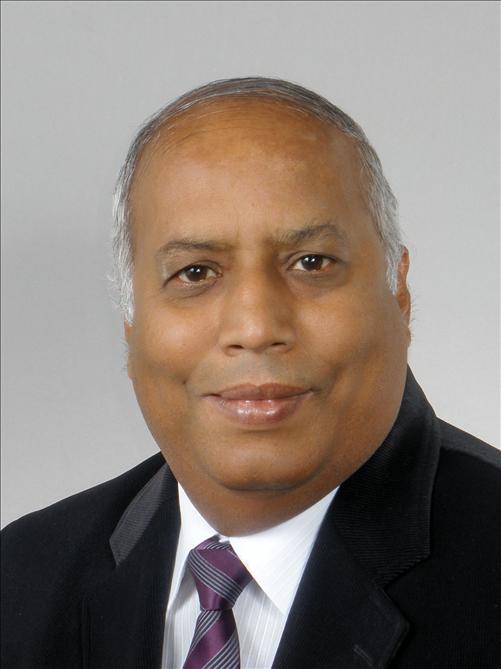 In his first speech to the Indian Parliament soon after he was elected President of India (July 25, 2002), Dr Abdul Kalam said that Indian civilisation and heritage were built on universal spirit.
In his first speech to the Indian Parliament soon after he was elected President of India (July 25, 2002), Dr Abdul Kalam said that Indian civilisation and heritage were built on universal spirit.
“India always stood for friendship and extends warm hands to the whole world,” he said.
He also cited a number of issues confronting the country.
“Poverty is a major economic problem, despite being endowed with rich natural resources. Increasing levels of literacy and employment opportunities have helped to reduce the number of people living below the poverty line but there is more work to be done to raise their living standards through adequate and quality education, health services and other measures,” he said.
Futuristic vision
Rather than ad hoc policies, India needs a futuristic vision which will focus on the development of human resources so that talent can be channelised for the benefit of the economy and wellbeing of all.
Dr Kalam asked, “What can that vision be?”
In his own words, “It can be none other than transforming India into a developed nation.”
“Can the government alone achieve this vision?
“No, we need a movement. This is the time to ignite the minds of people for this Movement. We will work for it. We cannot emerge as a developed nation if we do not learn to transact with speed,” he said.
No doubt, India faces a number of challenges but despite these, the country is marching to become a developed nation.
Formidable tasks
We often hear the saying, ‘India is Asia’s future’ and the ‘Asia is the World’s Future.’
The ideals of democracy, independent judiciary and policy of Non- Alignment and non-interference in the internal affairs of other countries are factors that have earned India respect of the international community.
The immense economic and commercial potential that India offers has encouraged all countries of the developed world to constructively engage with the world’s second most populated country with huge human resources.
Role for New Zealand
What is the role that New Zealand can play in this emerging market and be part of a vibrant nation?
While bilateral trade has been on the rise, New Zealand has benefited in a number of areas such as coal, dairy products, wood products, wool, tourism, education and films.
What else can a small, green and honest country offer?
Some businesses may be battling bureaucratic wrangling, red tape and some sort of corruption in India. In spite of these problems, the huge and growing market potential continues to attract businesses.
Meeting challenges
Almost all major multinationals have their presence in India.
So, how can New Zealand businesses overcome these problems?
I believe that they should consider establishing contact with organisations such as Infosys, Wipro, Godrej and many others who never compromise on moral and sound business values. These are just few of the examples.
Hence, our businesses should take that extra step and look for businesses that stand for honesty.
We have many success stories of such businesses.
We need business leaders who will walk the talk.
We need people and companies that would not get involved with corrupt practices, understand and respect Indian business regulations and bureaucracy, and adapt to meet their requirements.
It is important to understand the role of the government and rules in individual industries.
There are a number of governmental, non-governmental and commercial organisations that can assist businesses.
The Business Council
India New Zealand Business Council for instance, has forged links with several bodies in India. These include the Federation of Indian Chambers of Commerce & Industry (FICCI), the Confederation of Indian Industry (CII), the Associated Chamber of Commerce of India (ASSOCHAM) and the Punjab, Haryana & Delhi Chamber of Commerce and Industry (PHD).
Successful Business persons of Indian Origin who are New Zealanders and New Zealand based companies that are engaged with India could play an important role in enhancing commercial ties between the two countries.
With an insight into the businesses function in both countries, they can help new entrants to the Indian market.
We need to get them together and ignite their minds.
India welcomes FDIs
The Indian Government welcomes Foreign Director Investments (FDI) and New Zealand companies should carefully consider the available avenues and seek the advice of organisations that can facilitate contacts and assist in the process of establishing start-up of companies, joint ventures, distribution arrangements and other business deals.
Among the other emerging opportunities are low cost housing, healthcare, food processing and technology in dairy farming and dairy products.
We must encourage exchange visits between New Zealand and India businesses.
Our entrepreneurs should experience India in their own way and assess the country, its potential, its way of doing business and the areas of involvement.
While they should seek advice from other experienced businesses, they should own responsibility for their decisions.
Our dream is to make New Zealand an important trading and business partner of India, fostering higher levels of relationship with the peoples of the two countries.
As Prime Minister John Key said during his official visit to India in June 2011, “We strongly value our strong bilateral ties with India. We look forward to building on our ties in the years ahead, and learning more about and from India.”
Wenceslaus Anthony is Chairman of the India-New Zealand Business Council based in Auckland.




